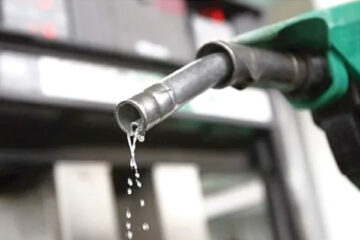
The federal government says Nigeria will save about $2.5 billion yearly from every one million vehicles powered by compressed natural gas (CNG).
Michael Oluwagbemi, programme director and chief executive officer, the presidential CNG initiative (P-CNGi), spoke at the south-south stakeholders’ engagement meeting on the CNG initiative, held in Port Harcourt, Rivers state, on May 17.
Oluwagbemi said CNG adoption will also reduce the pressure on foreign reserves and improve the value of the naira.
“For every 1,000,000 vehicles that Nigeria moves from petrol to natural gas, the nation is not just saving between $2.5 billion to $3 billion every year, we are also reducing the pressure on our foreign reserves, increasing the value of our currency, enhancing our export, we are creating jobs, we are enabling technology and innovation for our petroleum and clean energy sectors.”
He said aside from ensuring the adoption of CNG, the other mandate of the CNG initiative was to enable financing, as the funding gap for the sector is about $2.5 billion for the next three to four years.
“We recognise that government alone can not provide all the money. We estimate that less than 20 percent of the financing of the sector will come from the government sector, rather more than 80 percent of this will come from private players” he said.
He said investment in CNG will provide energy security and make Nigerian goods and services competitive as they are being driven by affordable fuel.
According to Oluwagbemi, external shocks — such as war affecting oil prices — will no longer affect Nigeria “because natural gas prices are controlled by the Nigerian government and not by what happens in the international market”.
He said Nigeria’s economy will be less exposed to cruel shocks experienced with the crude oil.
Oluwagbemi said over close to six decades, Nigeria has been wasting oil and gas resources while suffering energy poverty.
“Over the last five to six decades, these resources continued to be wasted, with critical implications for our physical and health, as well as the fiscal well-being of Nigeria,” he said.
“Nigeria is not just the country with the highest reserves of gas in Africa, but we are also the second highest waster of gas in the world, ranking only after Russia. We are a country that exports crude oil and imports petroleum products. And then waste it and turn around to suffer severe energy poverty.”
The federal government started canvassing for the adoption of CNG after President Bola Tinubu announced the end of subsidised premium motor spirit (PMS), also known as petrol, on May 29, 2023.
On August 19, Tinubu announced the CNG initiative.
Also, on May 15, Oluwagbemi said a conversion incentive will be developed for Nigerians, especially road transport operators, to convert their existing vehicles to run on CNG.
He said a financing programme will be unveiled on May 29.
On April 29, the federal government said it would launch the CNG initiative ahead of the first anniversary of Tinubu’s administration on May 29.
PCNGI, in collaboration with the private sector, plans to deliver 100 conversion workshops and 60 refuelling sites across 18 states before year-end.
In a bid to push for the adoption, on May 14, Farouk Ahmed, chief executive officer (CEO) of the Nigerian Midstream and Downstream Petroleum Regulatory Authority (NMDPRA), said the installation of CNG pumps by oil marketers will be required before new licences are issued.










